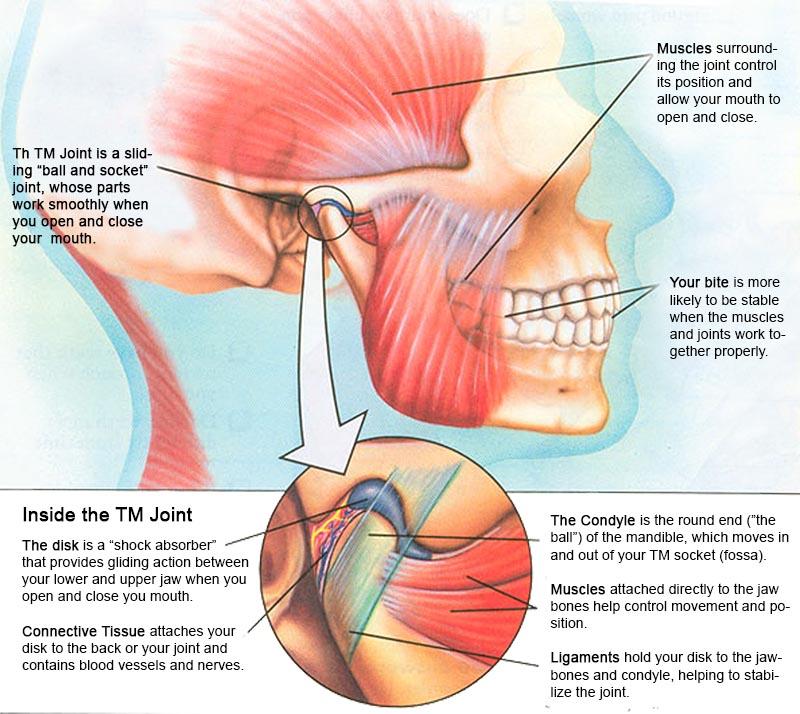TMJ/TMD TREATMENT IN HONOLULU
Temporomandibular joint and muscle disorders (TMJ/TMD) are fairly common and can manifest in various ways. These joints help connect our lower jaw to the sides of our head, and when there is a problem with the joints and muscles, it creates pain in the muscles responsible for chewing and speaking. Our office is trained to help you relieve pain and let you get back to smiling ear to ear!
Pain when chewing? Call our office if you have jaw pain
TMJ disorder is a condition that causes pain in your jaw joint and muscles that allow the jaw to move. The joint connects our lower jaws to the skull in front of our ears. The joint has two motions, a rotation and a hinge action that allows us to open and close our mouths and glide our jaws. These motions allow us to chew, talk, and yawn properly. What happens when there is inflammation around the joint? You can experience a painful condition that affects both the health and function of the jaw joint.
Common causes of TMJ are trauma to the jaw and teeth, misalignment of teeth, chronic grinding, stress, chronic gum chewing and poor posture. These types of problems put significant pressure on the temporomandibular joint. If you have any symptoms of jaw pain, jaw clicking and popping, stiff jaw muscles or a locking jaw, call our office today for an evaluation! Luckily, Dr. Sugiki is well trained to help patients manage your care!
Treatment of TMJ/TMD with Dr. Sugiki
Fortunately, most people can manage their jaw pain with home remedies, over-the-counter pain medication, and self-care which gives TMJ a good prognosis. For those with early symptoms, earlier diagnosis will improve the prognosis. Dr. Sugiki will evaluate your symptoms and possibly take additional images for a more detailed diagnosis. In many cases, TMJ disorder can be monitored without treatment if it is asymptomatic or not causing any problems. If symptomatic, non-surgical treatments are the first line of treatment, including medications, night guards or splints, and physical therapy.
BENEFITS of TMJ/TMD:

TMJ/TMD Treatment FAQ
The common signs and symptoms are jaw pain, jaw clicking and popping when opening, ear pain, temporal headaches, stiff jaw muscles, and locking of the jaw when opening wide. Some people may experience one or more symptoms depending on the severity.
You can help reduce your chances of developing TMJ disorder by preventing stress on your joint or prevent your condition from worsening by eating soft foods, avoid gum and taffy chewing, and using an occlusal splint while sleeping. You can also practice good posture, avoid smoking, and visit your dentist regularly. Proper dental care like orthodontics and restoring broken or missing teeth can help prevent TMJ disorder from worsening.
Dr. Sugiki can help create a custom oral appliance that fits comfortably in the mouth to help realign the upper and lower jaw. The appliance holds the jaw in place while you sleep to allow your muscles to relax and to prevent your teeth from wearing down.
If your dental insurance will not pay for your TMJ treatment, we are happy to discuss any financing options at your initial consultation. In addition to cash and major credit cards, we will work with you to explore many payment options.


